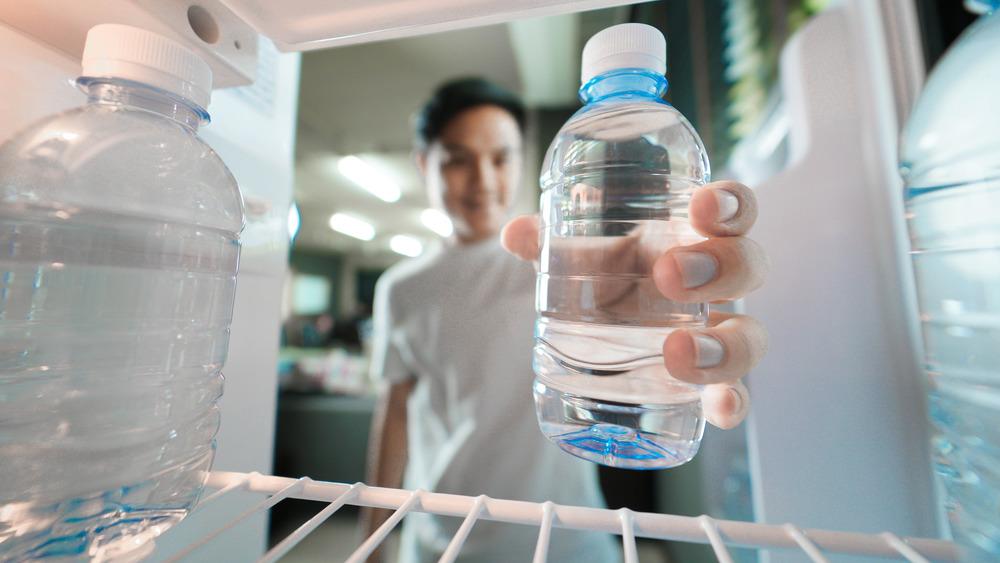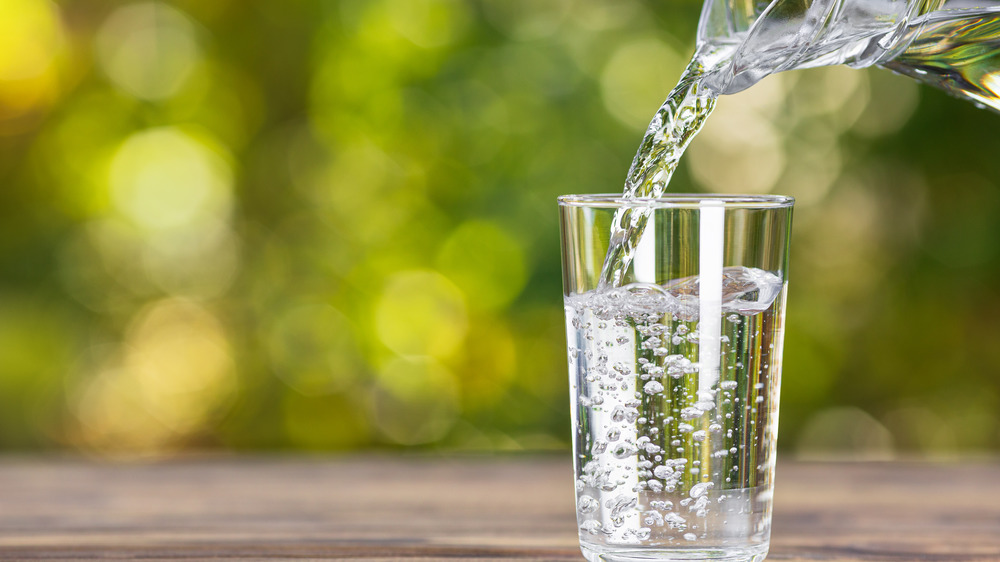What Drinking Cold Water Really Does To Your Body
Hydration is linked to a long list of benefits for your body, like clear skin, increased energy, and a healthy digestive system. Above all else, it's a necessity. While drinking water is about as basic of an activity as you can get, there are still plenty of myths around the topic starting with how much water you should have on the regular. If you're someone who believes that eight glasses of water a day will get the job done, you might want to take it up a notch. According to the Institute of Medicine, men should have about 13 cups of water daily, while women should have about nine cups.
Another myth to consider is whether or not cold water is better for you than warm or even hot water. It's often said that cold water boosts your metabolism, which helps to burn calories and ultimately, contribute to weight loss. Turns out, there's actually some truth to this belief. However, it's not as groundbreaking as you may have thought.
Drinking cold water increases the metabolism only slightly
Food Network Magazine confirmed that drinking cold water does make a difference, but it's nothing noteworthy. The outlet referenced a study by the University of Washington, which found that drinking cold water increases the metabolism only slightly. The study went on to mention that when you have cold water, you burn about eight more calories than if you were to gulp down water at room temperature.
What's the reason behind this secret calorie-burning effort, you ask? When you take in cold liquids, your body has to increase the liquid's temperature to meet your body temperature. Therefore, drinking cold water does have a positive effect, but it's so minor that this tactic alone won't assist with any kind of appreciable weight loss.
As long as you're getting a daily dosage of H2O in your diet, you should be on your way to a healthier lifestyle. While cold water might burn a few more calories, it's more important to make sure you're getting water in the right amount vs. water at the right temperature.

